The Last Jew of Eritrea: A Lonely Guardian of Tradition
Meet Sami Cohen, the sole Jewish resident of Eritrea, who dreams of a Jewish revival in his community: "I pray for a minyan to arrive here."
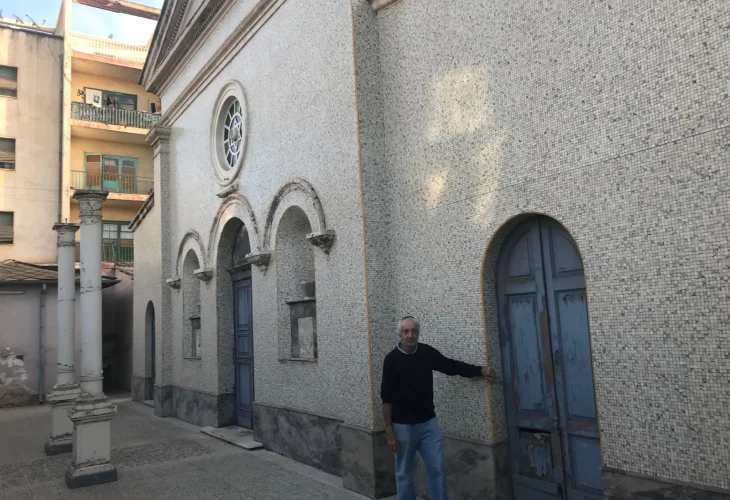 Sami Cohen with the Jewish synagogue in Asmara, Eritrea in the background
Sami Cohen with the Jewish synagogue in Asmara, Eritrea in the backgroundSami Cohen, aged 77, is the last Jew residing in Eritrea. His home is located in the capital city, Asmara. Surrounded by millions of Christians and Muslims, Cohen is the solitary Jewish beacon lighting up the entire area.
So what keeps him there, in this remote and foreign land? How did he come to be there, and why doesn't he move to Israel, to his people and his land?
"Everyone Left, One After the Other"
The story of the Jewish community in Asmara begins in 1905 when many families from Aden in Yemen arrived in the area for trade. They settled down, and soon began leading vibrant community lives: they established a synagogue, educational centers for children, and even a Jewish cemetery. A civil survey conducted at that time found that no fewer than 120 Jews were living there.
The community's decline began in the 1970s. Eritrea was affected by the socialist revolution, and military forces began implementing a harsh regime that severely impacted the Jewish community as well. "It got to the point where life in Asmara became unbearable," Sami Cohen recalls. "Most of the time, we were under curfew, electricity was spotty, and the food supply was extremely limited. In those days, a lot of our property was confiscated and nationalized, leaving many families suddenly destitute."
Those were fateful days for the Jewish community in Asmara, and indeed most of its members decided to leave and emigrate to the U.S. Some of them eventually moved to Israel as part of Operation 'Wings of Eagles.' "Our family was one of the few that stayed behind. Over the years that followed, everyone left one by one, and my family too left everything behind, settling in Rome and Israel. Since then, I'm the only one who remains in Asmara."
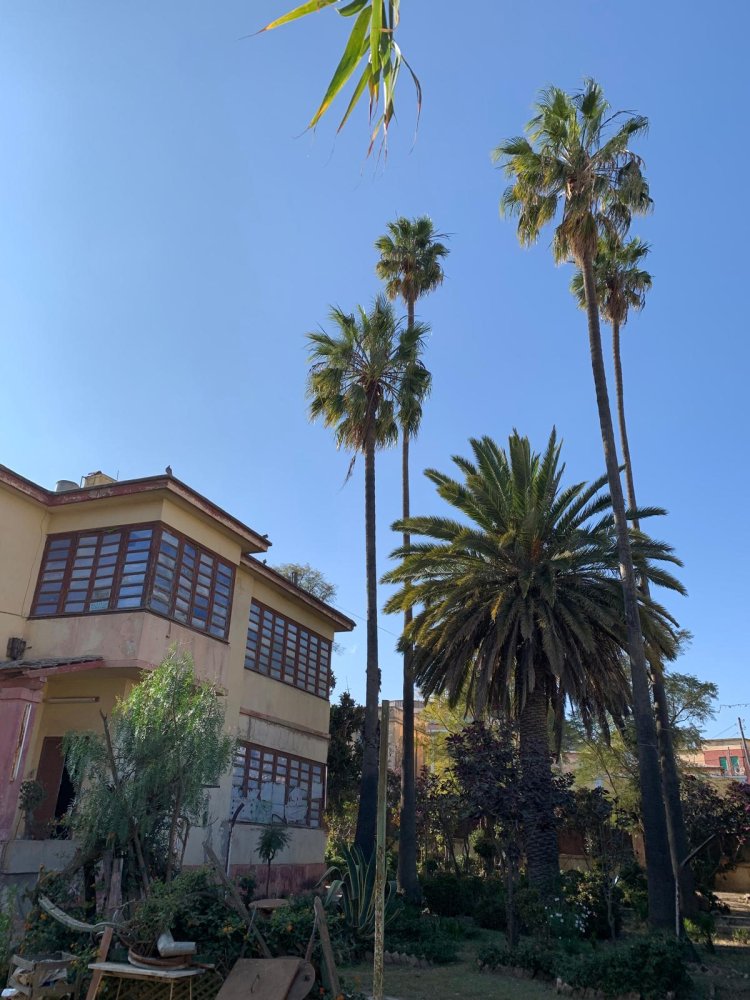 Here I was born. Sami Cohen's home in Asmara
Here I was born. Sami Cohen's home in Asmara
"I Don't Have Much to Do Here"
Asmara has mostly ancient and neglected streets. The synagogue is located on the city's main street. Cohen notes that the synagogue was the first religious structure built in the area, followed by those of other communities. A particularly stunning sight is during sunrise when the sun's rays illuminate the letter ה׳ on the front wall. "It's a clear sign of the divine presence," Cohen says with emotion.
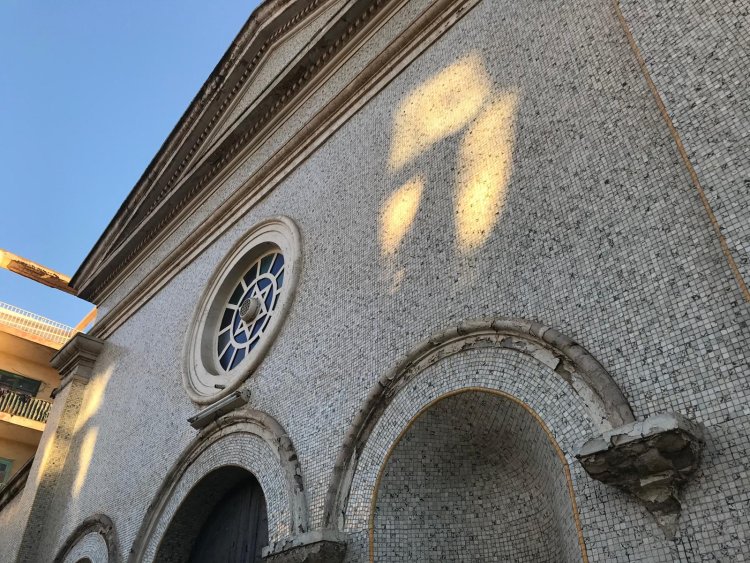 The letter ה' reflected on the synagogue wall in Asmara
The letter ה' reflected on the synagogue wall in Asmara
In 2005, marking one hundred years since the synagogue's founding, a special festive event took place. The city's streets were decorated, string lights were hung, and an enthusiastic band greeted the attendees. "Everyone who had left the community returned to participate in this celebration," he recalls. "It was an unforgettable and emotional event."
This grand celebration essentially became the "swan song" of the Jewish community in Asmara. On that day, the synagogue hosted its last-ever minyan. Since then, Cohen prays alone, maintaining and caring for it diligently every day.
Describe your daily routine.
"I wake up early in the morning, go to the synagogue, open it, and pray there. During the day, I sometimes clean the synagogue, and sometimes visit the cemetery and pay respects to the ancient graves. There's not much else to do where I live."
Cohen mentions that in recent years, the Eritrean government has drastically shrunk the job market. "The government doesn't give citizens the opportunity to work. It holds all resources in its hands, without allowing residents the chance to progress and develop. It's part of the president's policy. This is how he manages to hold onto leadership and ensure his complete and undisputed control over the country."
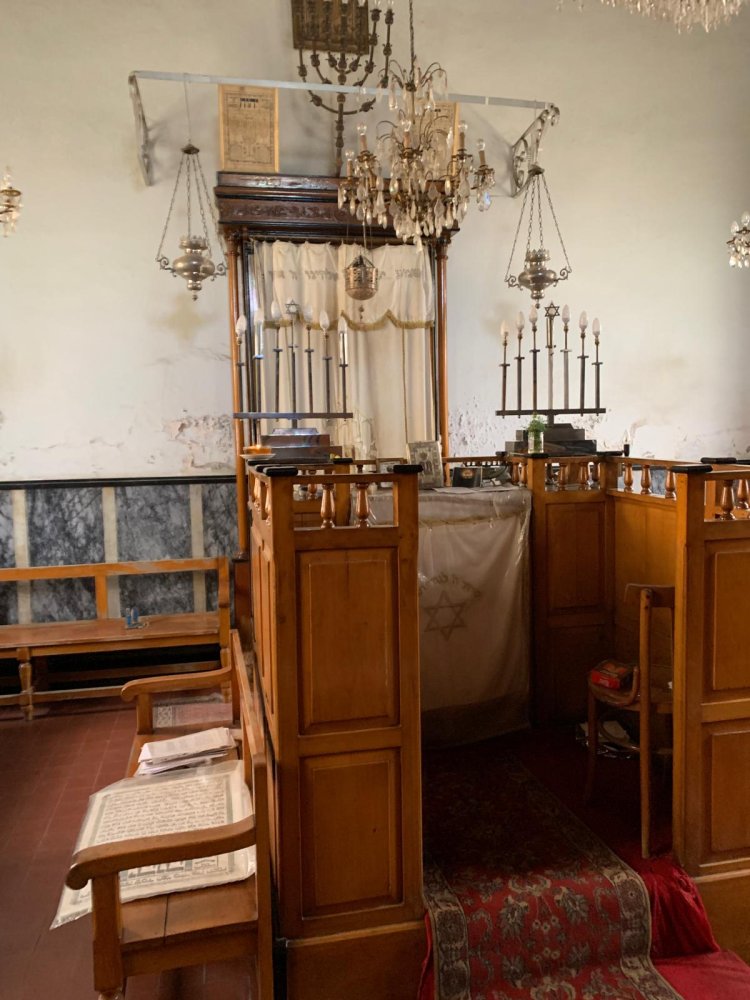 From the depths, I call to You. The synagogue's prayer platform
From the depths, I call to You. The synagogue's prayer platform
"An Israeli Doctor Healed the President"
The President of Eritrea, Isaias Afwerki, is one of Africa's military revolutionaries. In 1966, when the struggle for Eritrea's independence began, Afwerki joined the "Eritrean People's Liberation Front" and became its leader. Eventually, he allied with other groups like the RLF and fought for his country's independence against Ethiopian military forces. In 1993, the UN initiated a referendum that led to the recognition of Eritrea's independence. Afwerki became the country's first president.
In 1996, the president contracted malaria and was flown to Israel for treatment. Dr. Eli Schwartz, a leading expert in infectious diseases in Israel, treated him. "He was on the brink of death, and a Jewish and Israeli doctor healed him," Cohen describes proudly.
Cohen was among the few who accompanied the presidential entourage to Israel. Although many years have passed, he still remembers the days when Afwerki was hospitalized in Israel: "Every evening, I would go with him for a walk in the Sheba Medical Center's garden, and he never stopped thanking the Israelis who managed to heal him. During those days, he promised me that his government would do everything possible to return the confiscated property to the Jews who lived there, but today he ignores it."
Do you currently have contact with him?
"No. While the Israeli embassy in Eritrea was operating, we would gather once a year and celebrate with him the Independence Day of the State of Israel. Since the embassy closed, contact with him stopped, and there's almost no opportunity to meet him."
"Hashem Planted Me Here"
The Israeli embassy in Eritrea operated until 2010. The embassy days are remembered by Cohen as a refreshing period when he had company. Today, he is alone, the last Jew living in the country. Throughout the year, he travels to Rome and Israel alternately, to visit his family and children.
How does it feel living alone among non-Jews?
"I don't have an answer to this," he sighs after a long pause. "I have a house to live in, a synagogue to pray in, and I split my time between them. What can I do? Leave? And who will maintain the synagogue? Who will visit the cemetery? Hashem is the one who placed me in this spot, and He is the one keeping me here. I believe this is my mission in the world, and I'm here to stay.
"Sometimes, when I feel lonely, I go to the synagogue and pray," Cohen tears up. "I know I'm not alone because Hashem is with me. I must remain here for the sake of the synagogue and the cemetery, and I pray that Hashem will hear my prayers and return our Jewish community to its glorious days."
What is your final message?
"I'm reaching out to the people of Israel: come visit my home and pray with me. Every morning I pray to Hashem to send me a minyan of Jews, and together we will take the Torah scrolls out of the ark. In our synagogue, there are two beautiful and elegant Torah scrolls, and I hope soon I'll be able to take them out with song and dance and read from them with all of Israel."
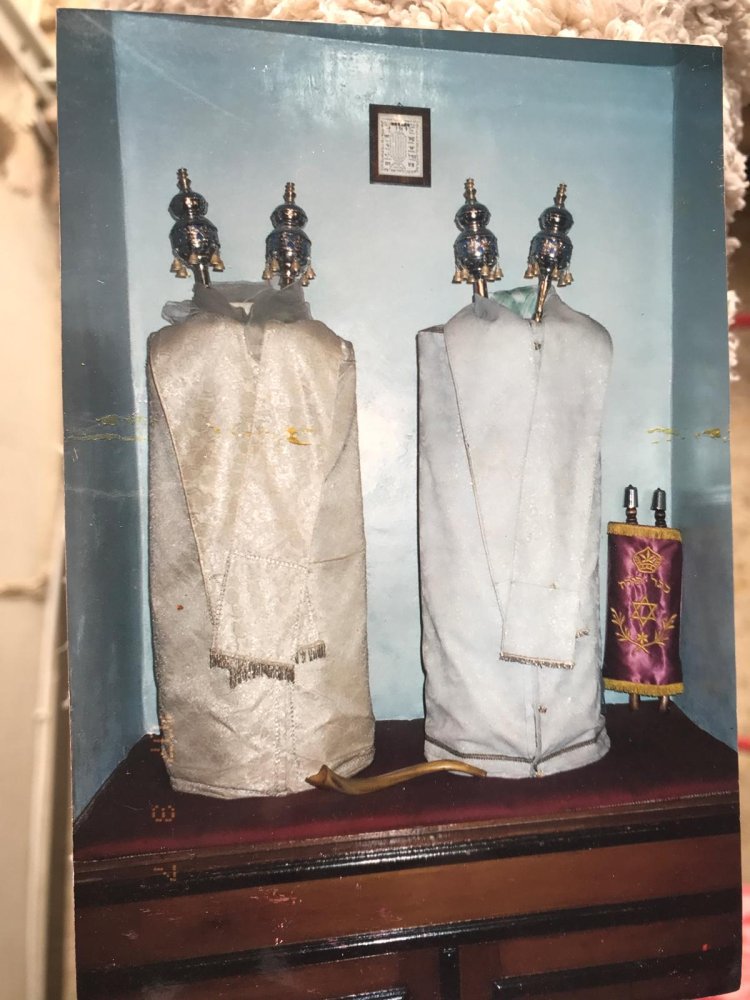 The ancient Torah scrolls in the synagogue
The ancient Torah scrolls in the synagogue
